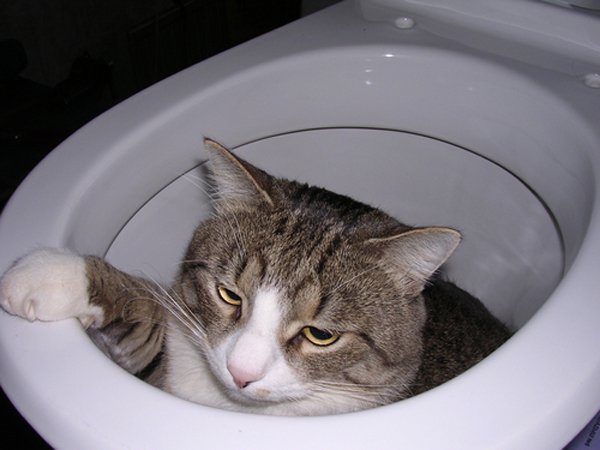Avoid Clogs and Damage: Don't Flush Cat Poop Down Your Toilet - Professional Insights
Avoid Clogs and Damage: Don't Flush Cat Poop Down Your Toilet - Professional Insights
Blog Article
Were you trying to find insight about Don’t flush cat feces down the toilet?

Intro
As cat proprietors, it's necessary to bear in mind exactly how we dispose of our feline close friends' waste. While it may appear convenient to purge pet cat poop down the toilet, this practice can have destructive consequences for both the atmosphere and human wellness.
Environmental Impact
Flushing feline poop presents hazardous microorganisms and bloodsuckers right into the water, posing a significant risk to water environments. These pollutants can adversely affect marine life and compromise water quality.
Health Risks
In addition to ecological problems, purging feline waste can also pose wellness threats to people. Cat feces might consist of Toxoplasma gondii, a parasite that can create toxoplasmosis-- a potentially severe ailment, particularly for expectant women and individuals with damaged immune systems.
Alternatives to Flushing
Luckily, there are more secure and more accountable methods to take care of pet cat poop. Think about the following choices:
1. Scoop and Dispose in Trash
The most usual technique of getting rid of pet cat poop is to scoop it into a naturally degradable bag and toss it in the garbage. Be sure to use a specialized clutter scoop and get rid of the waste promptly.
2. Usage Biodegradable Litter
Go with eco-friendly pet cat clutter made from materials such as corn or wheat. These litters are eco-friendly and can be securely taken care of in the garbage.
3. Bury in the Yard
If you have a yard, take into consideration hiding cat waste in a marked location away from veggie gardens and water resources. Make sure to dig deep enough to stop contamination of groundwater.
4. Install a Pet Waste Disposal System
Buy an animal garbage disposal system particularly made for feline waste. These systems make use of enzymes to break down the waste, decreasing smell and ecological impact.
Final thought
Liable animal possession expands past offering food and shelter-- it likewise entails correct waste management. By refraining from flushing feline poop down the bathroom and selecting different disposal approaches, we can lessen our ecological footprint and secure human health.
Why You Should Never Flush Cat Poop Down the Toilet
A rose by any other name might smell as sweet, but not all poop is created equal. Toilets, and our sewage systems, are designed for human excrement, not animal waste. It might seem like it couldn’t hurt to toss cat feces into the loo, but it’s not a good idea to flush cat poop in the toilet.
First and foremost, assuming your cat uses a litter box, any waste is going to have litter on it. And even the smallest amount of litter can wreak havoc on plumbing.
Over time, small amounts build up, filling up your septic system. Most litter sold today is clumping; it is made from a type of clay that hardens when it gets wet. Ever tried to scrape old clumps from the bottom of a litter box? You know just how cement-hard it can get!
Now imagine just a small clump of that stuck in your pipes. A simple de-clogger like Drano isn’t going to cut it. And that means it’s going to cost you big time to fix it.
Parasitic Contamination
Believe it or not, your healthy kitty may be harboring a nasty parasite. Only cats excrete Toxoplasma in their feces. Yet it rarely causes serious health issues in the cats that are infected. Most people will be fine too if infected. Only pregnant women and people with compromised immune systems are at risk. (If you’ve ever heard how women who are expecting are excused from litter cleaning duty, Toxoplasma is why.)
But other animals may have a problem if infected with the parasite. And human water treatment systems aren’t designed to handle it. As a result, the systems don’t remove the parasite before discharging wastewater into local waterways. Fish, shellfish, and other marine life — otters in particular — are susceptible to toxoplasma. If exposed, most will end up with brain damage and many will die.
Depending on the species of fish, they may end up on someone’s fish hook and, ultimately on someone’s dinner plate. If that someone has a chronic illness, they’re at risk.
Skip the Toilet Training
We know there are folks out there who like to toilet train their cats. And we give them props, it takes a lot of work. But thanks to the toxoplasma, it’s not a good idea.

As a fervent person who reads about How to Dispose of Cat Poop and Litter Without Plastic Bags, I thought sharing that piece was smart. Do you know about someone else who is excited by the topic? Feel free to promote it. I am grateful for your time. Please come by our blog back soon.
Request Appointment Report this page